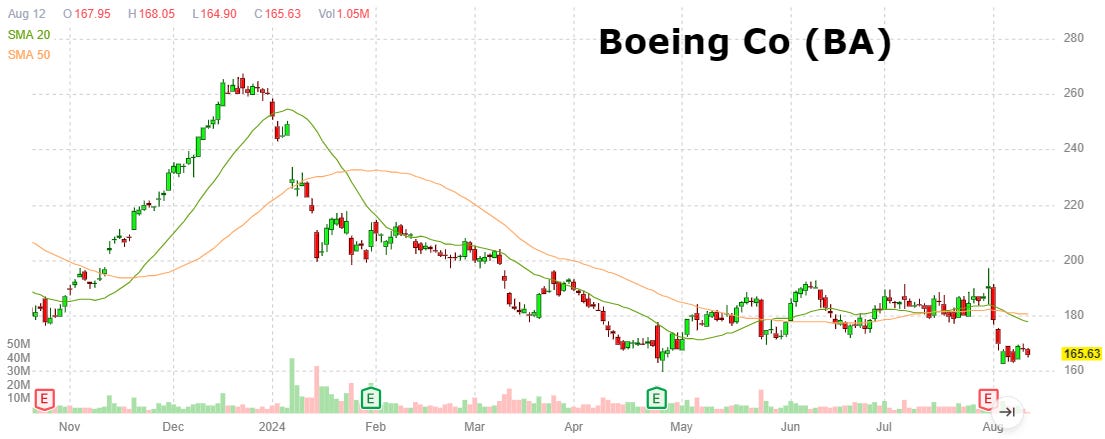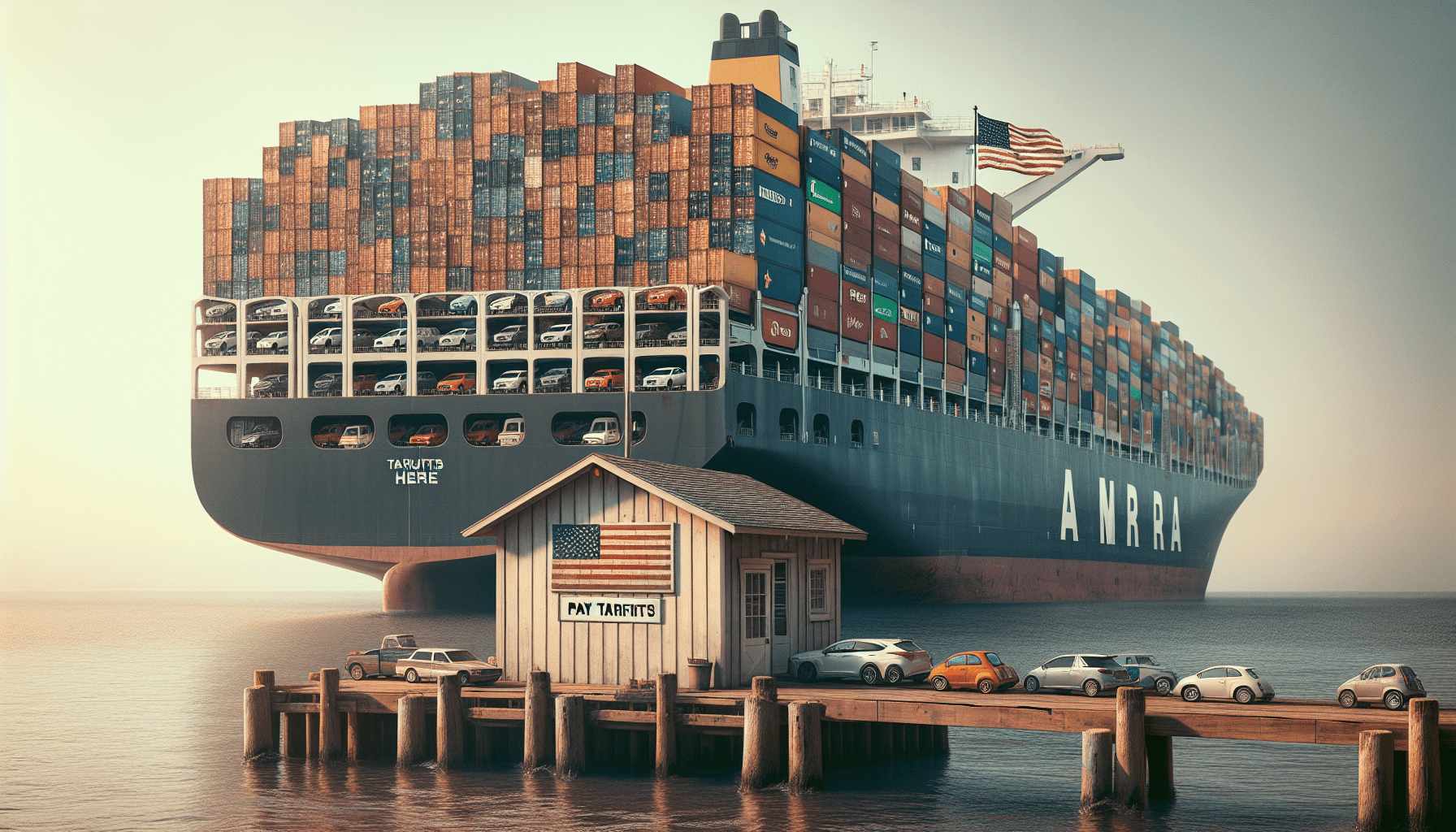Boeing’s “Too Big To Fail” Ace in the Hole
A critical role in national defense makes the company virtually irreplaceable

Boeing (BA) landed a $2.6 billion contract last month to build two E-7 Wedgetail planes for the U.S. Air Force. Yes, that’s more than a billion each.
The principles involved in the deal insist the aircraft cost a lot to design and manufacture because they have to jibe technologically with what our allies are flying. But, still.
Plus, Boeing will likely be supplying the U.S military with plenty of Ospreys, Apache helicopters, Chinook helicopters, Stingrays, FA Super Hornets, Bombers, F-15 Eagles and much more—all of it included in the 2025 Defense Appropriations bill.
The aerospace manufacturer will also get a chunk of change to update Air Force One—the president’s plane.
All this government generosity toward Boeing might seem misplaced to anyone who’s been watching the headlines for the past few years—or even just this week. The company is plagued by plane crashes, whistleblower scandals, structural failure in Earth orbit and dwindling stock prices back here on the planet.
Meanwhile, the company’s stock price sits at a 52-week low after losing 33% of its value year to date. Back of the napkin math indicates that’s $35 billion in market cap that’s simply vanished. The CEO recently resigned, too.
But we think we know what’s afoot. For several reasons, the powers that be may feel they don’t really have much choice when it comes to decisions on whether to keep Boeing alive or how to go about it.
Why this financial openhandedness?
First, there’s the “too big to fail” argument. We’ve seen it before when Detroit-based auto makers or the some of the nation’s big banks got themselves into financial trouble.
After all, who can imagine a world without U.S.-made cars and trucks? It just wouldn’t fit our idea of American exceptionalism. Henry Ford and his competitors and successors helped put the world on wheels long before most countries had their first car company.
And think back to the financial crisis that struck us in 2007. Many feared the global economy might come crashing down and ruin absolutely everything if the government didn’t save the banks from themselves.
To many people’s thinking, something similar could happen if Boeing stopped making commercial airliners. It’s one of the world’s two major producers of airliners, and the other one, Airbus, is based in Europe. Can you imagine a world with an American-made airliner?
Boeing produces something like 700 planes annually. More than 10,000 of them take to the airways daily, carrying millions of passengers and cargo worldwide. Its planes account for 30% of the global aircraft fleet.
Moreover, Boeing probably qualifies as “too big to fail” just based on its enormous size. Imagine the pain and suffering that would result in laying off 145,000 people in the United States and another 25,000 or so who work for the company abroad in more than 65 countries.
The company also supports more than 12,000 suppliers in all 50 states. It provides about 1.3 million jobs indirectly through its vast supply chain and aerospace manufacturing.
It brought in revenue of $77.8 billion in 2023—a sum most Americans would prefer not to see disappear from the gross domestic product. Its market capitalization of $99.2 would also be sorely missed if it were to disappear.
In addition, the company accounts for a significant portion of the U.S. trade balance, with billions in exports each year.
But as large as Boeing has become and as prestigious as it remains despite its challenges, its role in national defense also makes it virtually irreplaceable. That’s a key reason for the government’s largesse.
Boeing ranks fourth among U.S. defense contractors, behind, in order of size, Lockheed Martin (LMT), RTX (RTX) (formerly Raytheon) and General Dynamics (GD).
Once again, however, it’s not just about size. As a company that began making planes in 1916, Boeing has more than a century of defense-related institutional knowledge that no other company can match exactly.
Boeing uses that collective expertise to produce critical military aircraft, like the F/A-18 Super Hornet and the KC-46 tanker. Experts deem both essential for national security.
Finally, the company serves as a vital partner to NATO, where its technology and aircraft play a central role in multinational defense strategies.
But maybe there’s even more to the government’s apparently keen interest in Boeing’s continued existence.
What’s ahead for Boeing?
Are war drums beating for armed conflict with Iran, a hostile exchange with China or an unfortunate expansion of the aggression in Ukraine? Would the company prove irreplaceable in such wars?
Or are we simply seeing the U.S. government making strategic “investments” when the stock starts cratering?
What I do know is this: There’s such thing as coincidence in this sector.
Garrett Baldwin, Luckbox editor-at-large and author of the financial blog Postcards from the Florida Republic on Substack, studies market anomalies, liquidity and monetary policy. @floridarepcap




















